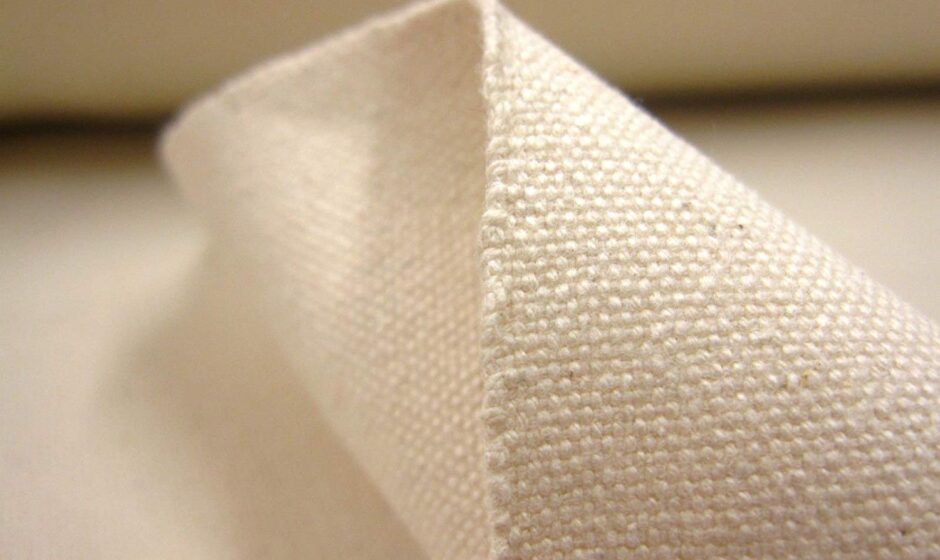Introduction
Canvas fabric is a durable and versatile material that has been utilized for centuries across various industries. Originally made from cotton or linen, Canvas Fabric is often crafted from a blend of cotton and synthetic fibers, making it an ideal choice for a wide range of applications, from fashion to home decor and beyond. This article explores the characteristics of canvas fabric, its various uses, types, and care instructions, highlighting why it remains a popular choice for consumers and manufacturers alike.
What is Canvas Fabric?
Canvas is a heavy-duty fabric known for its strength and durability. It is characterized by a tight weave, which provides excellent resistance to wear and tear. Traditionally, canvas was made from natural fibers, but today, it is often made from cotton, polyester, or a blend of both. This versatility in materials allows for a range of finishes and properties, making canvas suitable for various applications.
Types of Canvas Fabric
There are several types of canvas fabric, each suited for different purposes:
- Cotton Canvas: This is the most common type of canvas, made entirely from cotton fibers. It is soft, breathable, and easy to work with, making it ideal for items like bags, tents, and upholstery.
- Polyester Canvas: Made from synthetic fibers, polyester canvas is known for its water resistance and durability. It is often used for outdoor applications, such as awnings, tarps, and outdoor furniture.
- Cotton-Polyester Blends: Combining the best of both worlds, these blends offer the softness of cotton with the durability and water resistance of polyester. This makes them versatile for various applications, including fashion and home decor.
- Duck Canvas: A heavier version of cotton canvas, duck canvas has a tighter weave and is often used for more demanding applications, such as workwear and outdoor gear.
- Sailcloth Canvas: Designed specifically for making sails, this type of canvas is exceptionally durable and resistant to harsh weather conditions, making it suitable for marine applications.
Uses of Canvas Fabric
Canvas Fabric versatility allows it to be used in numerous applications across different industries:
1. Fashion
In the fashion industry, canvas is commonly used to create bags, shoes, and clothing. Its durability and easy maintenance make it a popular choice for casual wear and accessories. Brands often use canvas for tote bags, backpacks, and shoes, providing a stylish yet functional option for consumers.
2. Home Decor
Canvas fabric is widely used in home decor, particularly for upholstery, curtains, and wall art. Its ability to hold dye well makes it a popular choice for printed designs and patterns. Additionally, canvas drop cloths are often repurposed for unique DIY home projects, such as custom cushions or wall hangings.
3. Outdoor Equipment
Thanks to its durability and water resistance, canvas is often used for outdoor gear and equipment. This includes tents, tarps, and awnings, which require a strong fabric that can withstand the elements. Canvas Fabric and outdoor furniture covers are also popular choices among outdoor enthusiasts.
4. Art
Canvas has been the traditional choice for artists for centuries. Artists use canvas to create paintings, as it provides a sturdy surface that can hold paint well. Stretched canvas and canvas boards are commonly used for various painting techniques, including oil, acrylic, and mixed media.
5. Industrial Applications
In industrial settings, canvas fabric is used for a variety of applications, including conveyor belts, tarps for transporting materials, and protective covers for machinery. Its strength and durability make it an excellent choice for demanding environments.
Advantages of Canvas Fabric
Canvas fabric offers several advantages that contribute to its popularity:
1. Durability
One of the most significant benefits of canvas is its durability. The tight weave and thick fibers make it resistant to tearing, abrasion, and wear, allowing it to withstand heavy use over time.
2. Versatility
Canvas can be used in a wide range of applications, from fashion and home decor to outdoor gear and industrial products. This versatility makes it a valuable material for manufacturers and consumers alike.
3. Easy Maintenance
Canvas Fabric is relatively easy to clean and maintain. Most canvas items can be machine washed or wiped down with a damp cloth, making it a practical choice for everyday use.
4. Customization
Canvas can be easily printed or dyed, allowing for endless design possibilities. This makes it a favorite for brands looking to create unique products that stand out in the market.
5. Eco-Friendly Options
Many manufacturers are now producing organic cotton canvas and recycled polyester canvas, providing eco-conscious consumers with sustainable options.
Caring for Canvas Fabric
While canvas is durable, proper care is essential to maintain its appearance and longevity. Here are some tips for caring for canvas items:
1. Cleaning
Most canvas fabric can be cleaned with mild soap and water. For small stains, spot cleaning with a damp cloth is usually sufficient. For larger items, such as bags or outdoor gear, machine washing on a gentle cycle is recommended. Always check the care label for specific instructions.
2. Drying
Canvas should be air-dried whenever possible. Avoid using a dryer, as the heat can damage the fabric and cause it to shrink. If necessary, tumble dry on a low setting, but remove it while still slightly damp to minimize creasing.
3. Storing
When storing canvas items, keep them in a cool, dry place to prevent mold and mildew. Avoid folding heavy items, as this can create creases that are difficult to remove.
4. Waterproofing
For outdoor canvas items, consider applying a waterproofing spray to enhance their resistance to moisture. This is especially important for tents, tarps, and outdoor furniture covers.
Conclusion
Canvas Fabric is a timeless material that continues to be a favorite across various industries due to its durability, versatility, and ease of maintenance. From fashion to art, home decor to outdoor gear, canvas serves as a reliable choice for a wide range of applications. Understanding the different types of canvas, their uses, and how to care for them can help consumers make informed decisions and enjoy the benefits of this remarkable fabric for years to come. As sustainability becomes increasingly important, the availability of eco-friendly canvas options further enhances its appeal, ensuring that canvas remains a relevant and valuable material in today’s market.



